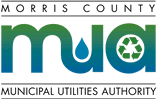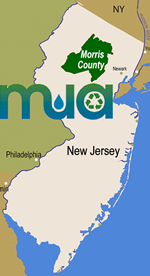Transfer Station Info (Tip Fee $113.00/ton)
- Mt. Olive Mon-Fri 7:30am-3pm; Sat 7:30am-11am
- Parsippany Mon-Fri 7am-3pm; Sat 7:30am-11am
- Closed Sundays and Major Holidays
- No Rental Trucks
- Payment by Account, Check, Credit Card. No Cash
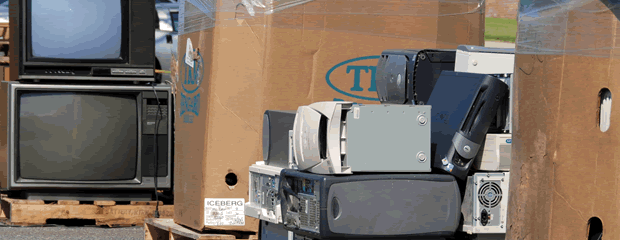
F.A.Q. Electronics (E-Waste)
The MCMUA operates one of NJ's most comprehensive household hazardous waste (HHW) programs. This F.A.Q. page and information on hazardous materials is intended as a guide about HHW materials as well as the MCMUA's HHW program. This information is a general guide and does not constitute official rule, regulation or law.
Hazardous Waste Materials
- Adhesives
- Aerosols
- Antifreeze
- Appliances (CFCs)
- Art & Crafts
- Asbestos
- Batteries (Auto & Boat)
- Batteries, Household (dry cell)
- Cell Phones
- Compressed Gas Cylinders
- Driveway Sealer
- Electronics
- Fire Extinguishers
- Fluorescents
- Gasoline
- Medical Waste
- Kerosene
- Mercury
- Motor Oil & Filters
- Muriatic Acid (HCl)
- Paints & Stains
- Pesticides
- Photo Chemicals
- Pool Chemicals
- Propane
- Rock Salt
- Smoke Detectors
- Solvents
- Wood with Lead Paint
New Jersey's "Electronics Waste Management Act" mandates the establishment of a free and environmentally sound recycling program (E-cycling) for computers, monitors, laptops, portable computers televisions, desktop printers and fax machines. These programs are required to be established and funded by all the manufacturers that produce this equipment for residents, schools, institutions and businesses with under 50 employees. In accordance with the act, computers, monitors, laptops, portable computers, printers and fax machines (desk-top sized) and televisions are banned from being disposed of in the garbage. At a minimum, these discarded electronic items must be recycled and cannot be placed in the garbage for disposal.
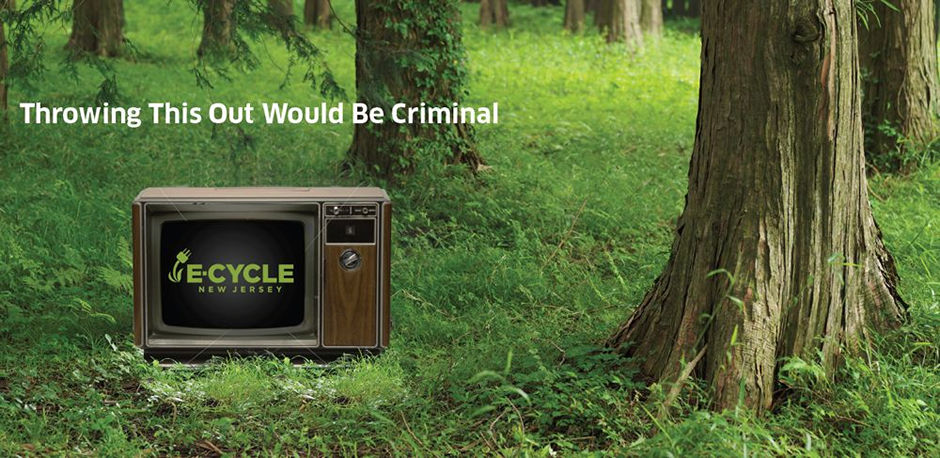
Managing Electronics (E-Waste) with the MCMUA
The following items are accepted as part of the MCMUA electronics recycling program: computers, laptops, monitors, televisions, tablets, mobile phones, desktop printers and fax machines.
As of 2011 and in accordance with Electronic Waste Management Act., the above items are banned from being placed in the garbage for disposal. In 2018 desktop printers and fax machines were added to the disposal ban list. Please note that starting in 2018 only the above listed items will be accepted as part of the electronics recycling program. All other electronic items not listed above are not covered by the Electronic Waste Management Act nor the programs established by manufacturers as operated by the MCMUA. As such all "non-covered" electronic waste (keyboards, mices, speakers, audio equipment, wires, accessories, scanners, appliances, etc.) are directed to be disposed of in the garbage. Please remove all rechargeable batteries and recycle them prior to placing items in the garbage for disposal.
Items accepted from residents and businesses with less than 50 employees are free of charge. Businesses with more than 50 employees, and/or out-of-county participants that use the MCMUA's drop-off programs will be assessed fees starting at $3.00 per component. Recycling fees are based on the size of the item - Click here to see the generalized price list.
Links Related to Electronics Recycling
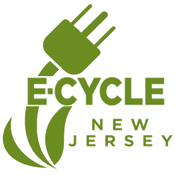
- MCMUA database of facilities that accept electronics in Morris County (public and private)
- NJDEP E-Cycle Website NJ's official E-Waste management Web page.
- Download NJDEP List of E-Waste Collection Sites (Excel Table) or call 1-866-DEPKNOW. Note: These state listings are not necessarily accurate so please contact any drop-off program prior to delivery to confirm policies.
- NJ Electronics Waste Management Act - read the legislation
- NJDEP List of Electronics Recycling Facilitiesin NJ - These facilities are NJDEP approved to demanufacture or accept electronics.
-
2010-10-13 letter
from NJDEP to haulers informing them of the electronics recycling act and the disposal ban on
covered electronics devices.
Other Computer and Electronics Recycling Programs
The list below represents some of the opportunities to recycle electronics through existing retail and non-governmental locations. Please contact any location prior to dropping off material as their policies may have changed from what is listed below.
- Best Buy offers electronic recycling services at all its stores nationwide. Best Buy accepts nearly everything electronic for free including computers, DVD players, monitors, cell phones, printers, stereos, etc. Televisions have fees associated with their acceptance. TVs with tubes under 32" or Flat Panel TVs smaller than 50" are accepted at the stores for $25 per TV with a 2 TV limit per day. Tube TVs larger than 32" or Flat panel TVs larger than 50" must be picked up by Best Buy for a fee, typically between $99. Best Buys will take old TVs with them for recycling when they deliver a new one to your home. Best Buy won't take computer hard drives (please remove them first), appliances or anything containing freon, like refrigerators, air conditioners or dehumidifiers. Click here for more information. Drop off is available at customer service desks during normal business hours.
- Apple - Click here for a link to information regarding the recycling opportunities provided by Apple, Inc.
- Staples accepts some electronics for recycling at its stores for a fee. Click here to read about Staples electronics recycling program. In short, Staples accepts computers, laptops, monitors, hard drives, printers, cell phones, rechargeable batteries and toner cartridges. Staples does not accept televisions. Electronics cost $10/item to recycle except Dell products which are free. Drop off is at the customer service desk during regular hours but call the store first to verify. They also offer $2.00 in Staples Rewards for each toner cartridge dropped off for recycling.
- Goodwill and Reconnect is a no-charge computer recycling program for consumers sponsored by Dell and Goodwill. The one Morris County location is at 226 Route 46 in Rockaway but they also have Springfield and Fairfield locations just outside of Morris County. Goodwill will accept computers and electronics for recycling but not TVs. They will accept TVs up to 25" as a donation for resale but they must be working and no older than 10 years old. Click here for more information.
Hazards Associated with Electronics (E-Waste)
- Electronic equipment, appliances with printed circuit boards, may contain lead from solder, mercury in switches, lithium batteries, and heavy metals in the printed circuit boards.
- Cathode ray tubes (CRTs), including televisions and computer monitors, contain approximately 5 to 8 pounds of lead per unit.
-
These items do not pose any health and safety risk while intact, but may if dismantled or improperly disposed.
Handling Electronics (E-Waste)
- Store and handle in a manner that minimizes breakage, especially CRTs.
-
Do not attempt to dismantle CRTs without proper training, high voltage in the capacitor can discharge a lethal charge.
